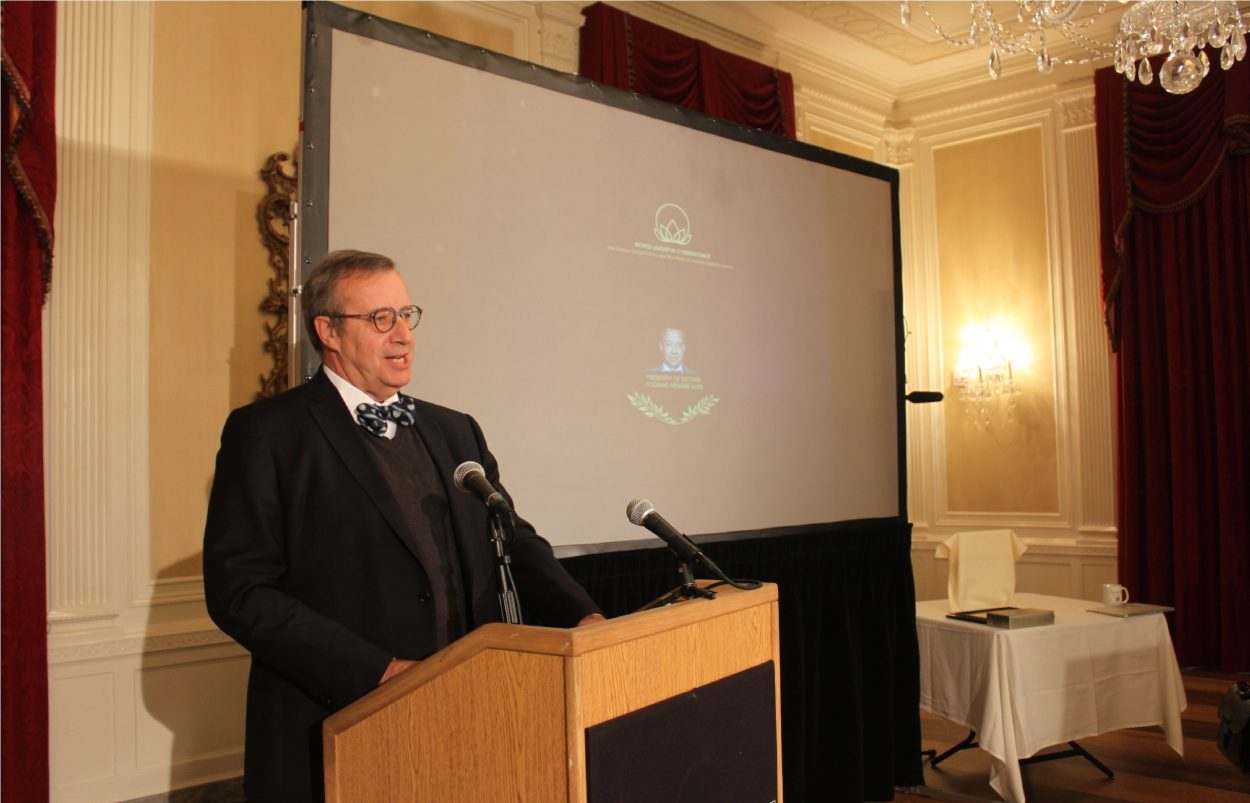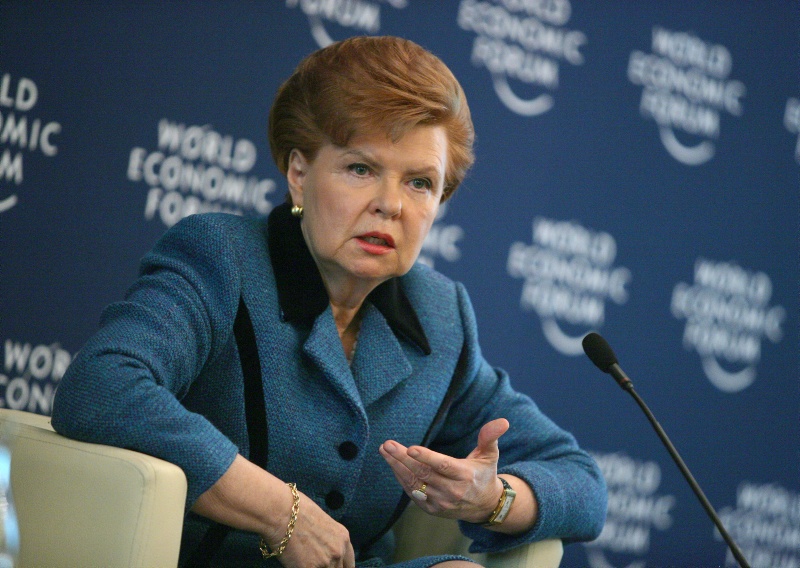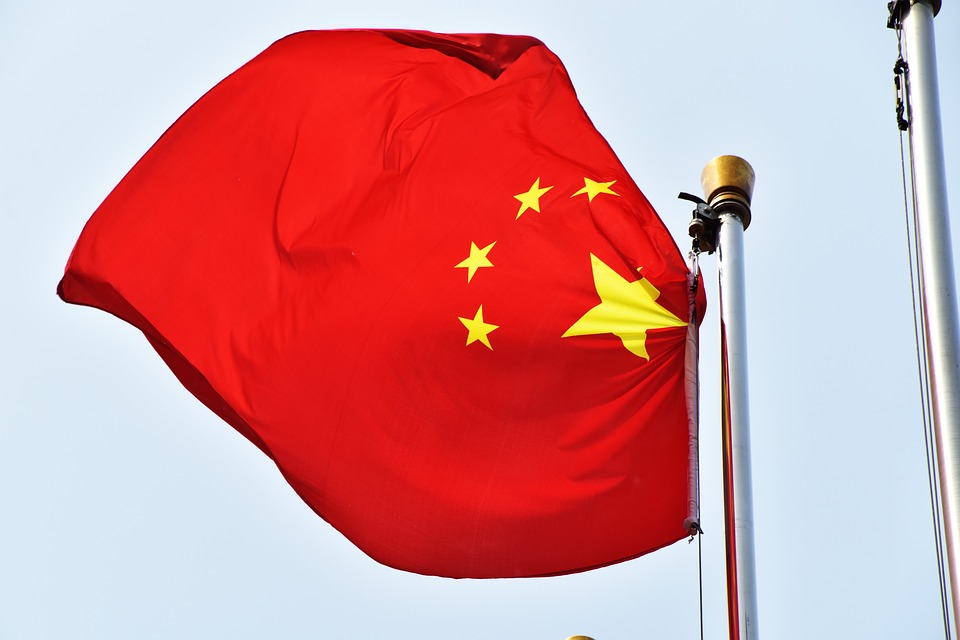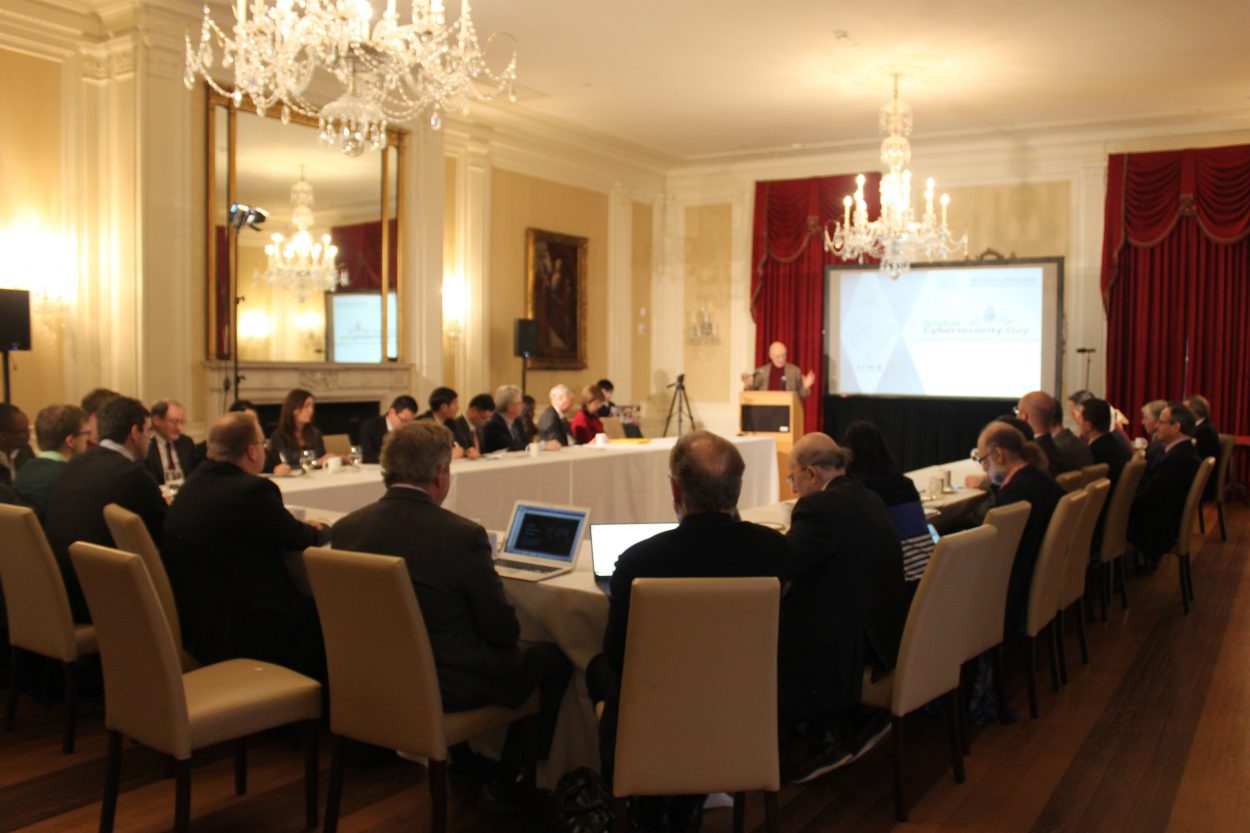
by alexander | Mar 17, 2018 | News

In an
interview earlier this year with
Inside Cybersecurity, former Estonian President Toomas Hendrik Ilves called for NATO to lead global cooperation in cybersecurity. He believes it is important that the U.S. show global leadership and lead democracies on this front. “We need a broader tent of liberal democracies. The bad guys are attacking democracies,” he said. He also stressed the importance of not sacrificing democratic values when pursuing cybersecurity: “If they’re to going to hack the [DNC], we can’t respond by hacking the Russian elections, because that’s not really democracy.”
This is an idea he also brought up in a Washington Post op-ed last October. He urged a multifaceted approach to cybersecurity, saying it “must be international and must be broad-based, ranging from regulating social media to guarding our electrical grid and electoral systems.” Unless liberal democracies can unite and work together on the digitial front, he believes, they will remain vulnerable.
AIWS agrees strongly with President Ilves. The surest way to establish lasting norms in cybersecurity, A.I., and related areas is through collaboration between democracies. In December, President Ilves was awarded as a BGF World Leader in Cybersecurity for his leadership in digitizing Estonia. You can watch his acceptance speech below and read a transcript of it
here.

by alexander | Mar 17, 2018 | News
Artificial Intelligence research in the U.S. has traditionally been the domain of private companies, but the Pentagon has recently
reached out to Silicon Valley for assistance. With China declaring its intention to become the global leader in A.I., the military (and other branches of government) are beginning to feel that they’re falling behind.
Silicon Valley has been hesitant to help, however, fearing dangerous applications of technologies. The biggest collaboration to date has been between Google and the U.S. Department of Defense on
Project Maven, which is developing A.I. to analyze drone footage. Google has publicly stated that it is working with the Pentagon on technology for “non-offensive uses only.” The DoD has a Silicon Valley branch itself in the form of their Defense Innovation Unit – Experimental (DIUX) that researches technology like A.I.
AIWS considers all possible applications of A.I. and robotics. For that reason, we work together with both companies like Google, and organizations like the U.S. Naval War College. At the same time, we are working hard to ensure that this technology is used to create a better, safer, more secure world. On April 25, we will announce our Ethical Framework for AI for this very purpose. The framework is a 7-layer model, with the third layer focusing on standards. We hope this model will help make the world better, safer, more transparent.

by alexander | Mar 17, 2018 | News

Image: World Economic Forum/E. T. Studhalter
President Vaira Vike-Frieberga gave a powerful message to mark International Women’s Day on March 8th. In it, she praised “all the talented, strong and successful women who have broken through an endless variety of glass ceilings” and declared her solidarity with women who “suffer injustice, prejudice, violence and violation.”
International Women’s Day has been celebrated since the early 1900s and was officially adopted by the UN in 1975 to celebrate women’s contributions to democratic values and human rights.
“Dear girls and women across the world,” she said, “stay strong and beautiful and follow fearlessly the path that each of you have chosen as your own!”
Ms. Freiberga was the first female President of the Republic of Latvia, serving from 1999 to 2007. She currently serves as President of the Club de Madrid – World Leadership Alliance, comprised of over 100 former heads of state from democratic states. She is also a member of the Board of Thinkers at Boston Global Forum and AIWS. In January, BGF and MDI presented her with a Certificate of Honor for her dedication to promoting democracy and the beneficial application of new technologies. We are honored to work with her and Club de Madrid to promote democracy and consider the implications artificial intelligence will have on it.

by alexander | Mar 17, 2018 | News

On April 25, 2018, the annual BGF-G7 Summit Conference will be held at the Harvard University Faculty Club. Every year, this conference brings together world leaders in government, technology, and business to discuss pressing issues. The ideas and proposals are then presented to the annual G7 Conference, which will be held this year on June 8-9 in Charlevoix, Quebec.
In 2017, we announced the
Taormina Plan to encourage states to cooperate on cybersecurity and combat the prolific spread of fake news through means such as social media.
In 2016, we announced the
Ise-Shima Norms, which encouraged cybersecurity experts to openly and freely share their best practices and recognized that a true solution can only be found through collaboration between academics, industry, and governments.
For 2018, our core focus is artificial intelligence. We will officially announce our
Ethical Framework for AI, which will consist of seven layers. AIWS will also announce the first two ever World Leaders in AI, to pioneers who have proved their dedication to advancing A.I. to benefit society. The BGF-G7 Summit Conference is one of our largest events, and we greatly look forward to it.

by alexander | Mar 17, 2018 | News
With China making seemingly rapid gains in A.I., the burning question is: What is the U.S. doing about it? Many are using the analogy of A.I. development as “the new space race,” with America falling behind just as it did when the Soviets launched Sputnik in 1957. China has recently invested heavily in AI, between government projects and initiatives led by companies like Alibaba.
This issue has also caught the attention of the
Bulletin of the Atomic Scientists, best known for their “doomsday clock” that measures how close humanity is to its own destruction (currently ‘two minutes to midnight’). They note that China is investing heavily in its own A.I. research, as well as in private U.S. companies. There is, of course, risk of this turning into an arms race, which could be catastrophic.
You can also read more about the specifics of China’s AI policy in a report by the Future of Humanity Institute, which you can read
here.
China’s stated desire to dominate AI is of grave concern to AIWS. We believe that any attempt to unilaterally set standards in this new field is dangerous and counterproductive. China wants to set and dominate on AI standards, which could be very dangerous for the world. Instead, democratic states should collaborate extensively and openly to ensure that this technology remains safe, stable, and used in service to humanity.

by alexander | Mar 14, 2018 | News

Image: NASA/Paul E. Alers
We mourn the passing of Stephen Hawking, an intellectual titan who dedicated his life to understanding the cosmos and our place in it. His ideas revolutionized cosmology and many other scientific fields, including artificial intelligence. In a November interview, Stephen Hawking said that “If people design computer viruses, someone will design AI that improves and replicates itself. This will be a new form of life that outperforms humans.” He believed that AI will be “either the best, or the worst thing, ever to happen to humanity,” but remained hopeful that it can be used to improve our world.
Although he has passed away, his groundbreaking ideas live on. We at AIWS share his concerns about the future of AI, as well as his hopes that it can be used for the betterment of humankind. Max Tegmark, author of the best-seller Life 3.0 and a colleague of Professor Hawking’s, will work to us and bring his ideas to AIWS and speak at our BGF-G7 Summit Conference this April. In 2017, Boston Global Forum recognized Professor Hawking as a Distinguished Global Citizenship Educator, along with Professor Joseph Nye of Harvard. We will continue to work toward and honor Professor Hawking’s vision for the future.
by alexander | Mar 11, 2018 | News
Earlier this month, German Chancellor Angela Merkel got the votes she needed to create a new coalition government. A coalition has formed between her own Christian Democratic Union (CDU/CSU) party and the Social Democratic Party (SPD). With this deal, Chancellor Merkel and her allies can resume building policies for Germany’s future.
Among the coalition agreement’s many goals is one to invest heavily in digitization and cyber research by 2021. Chancellor Merkel stressed the importance of adapting digital technology for better governance at this year’s World Economic Forum in Davos. This coalition deal proves that others . New measures are being proposed to improve Germany’s internet infrastructure, strengthen its cybersecurity, and create a “master plan” for AI policy – especially as China continues to advance its own AI sector.
In 2015, the Boston Global Forum presented Chancellor Merkel with the World Leader in Peace, Security, and Development Award. We at AIWS are excited to see new German initiatives in cyber and AI technology under Chancellor Merkel’s new government.

by alexander | Mar 10, 2018 | News
In the 21st century, and especially in the last few years, a number of disturbing challenges have emerged that may threaten peaceful democratic governance. AIWS works at the intersection of technology and politics to envision the best possible future. We believe that peaceful democratic governance that uses new technology ethically is the ideal. Our members are considering pressing questions today, such as:
- How can we face the challenge of extreme nationalism and populism?
- How can we face the challenge of new authoritarianism and dictatorships?
- How can new technology help promote democracy?
AIWS believes that artificial intelligence and related technologies offer a good solution to these challenges. AI analytics will help us better understand political trends and leaders in a more rational way. AI and cyber technology can help us identify dictators and raise the alarm sooner and more effectively. They can also help combat extreme nationalism and fake news that threaten open and peaceful societies.
We also believe that meeting these challenges requires cooperation and dialogue between governments, corporations, and academics. This is why we collaborate with groups like Club de Madrid in their Next Generation Democracy initiative. It is also why we work with pioneers like Walter Langelaar, who co-developed the world’s first AI politician. AIWS believes that, no matter what challenges democratic society faces, collaboration and ethical technology can help us.

by alexander | Mar 10, 2018 | News
What will the city of the future look like? According to Sidewalk Labs, a subsidiary of Alphabet: smart. The company was founded in 2015 to solve urban problems through technology. Their latest project is a Toronto neighborhood, Quayside, which could soon be home to up to 5,000 residents along the city’s waterfront. The vision includes self-driving cars and a network of sensors that will monitor infrastructure data from building occupancy to sewage flow. There are even plans for an underground network of robots to deliver mail and collect garbage. Altogether, the new district would use new technologies to tackle old urban problems.
While smart cities have been envisioned for decades (think the Jetsons), such a project has yet to be successful. Sidewalk Labs hopes to design the first. They have already gotten a number of Quayside is not without skeptics and critics, however. One of the biggest concerns is data security. With such a network of sensors, some data privacy advocates are concerned about who will have access. Artificial intelligence is all around us and, if Quayside is successful, might one day move into a neighborhood near you. It is the mission of AIWS to consider ways to ensure that such projects benefit everyone.












